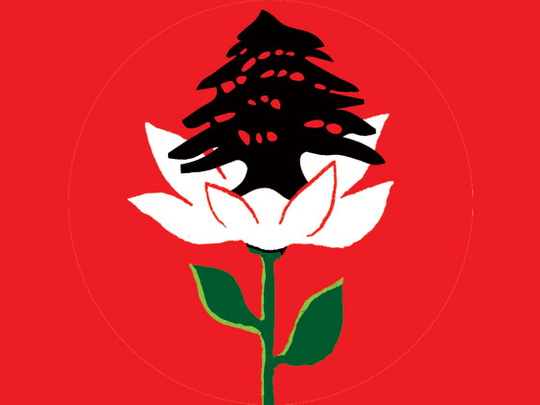
The current uprisings in the Arab World have left Syria, Egypt and other countries in the region in virtual political disarray. To the Lebanese, accustomed to perennial meddling in their internal affairs by their Arab ‘brethren,' trouble abroad is offering a welcome respite at home. The Arab Spring may, in fact, be presenting Lebanon with a golden opportunity to come of age.
How wholeheartedly Lebanon's politicians will be able to, or even want to, embrace the opportunity to engage in self-rule remains to be seen. Ironically, Lebanon's current government is uncharacteristically cohesive, a coalition led by Hezbollah, and firmly backed by the strongest Christian group in parliament. This is good and bad.
Good because only a cohesive and strong government can lead Lebanon to self-rule. Bad because Hezbollah, whatever its positive sides may be, is a paramilitary grouping, with strong links to the Iranian and Syrian regimes.
Nominally a republic since independence, Lebanon has consistently held national elections that have in fact led to actual changes in leadership — a far cry from the laughable 99 per cent yes votes normally yielded in elections in Syria, and Egypt, and elsewhere in the region.
However, in many ways Lebanon's democracy has been skin deep, perennially belied by the weakness of its institutional structures, its sectarian divisions, and by persistent and substantial external intervention in its affairs.
Its two previous presidents, Elias Hrawi (1989-1998) and Emile Lahoud (1998-2007), were named to their posts by Damascus, with parliament simply asked to rubber-stamp the decision. Each had his term unconstitutionally extended for three years following pressure from the Syrian capital. The late prime minister Rafik Hariri was known to confide to aides that he would confirm who the ministers in his various cabinets were only after the final list of names arrived from Damascus.
Crucial equation
Matters were not different in the early days of the republic. The French, who ruled Lebanon under an international mandate until 1946, virtually dictated the names of its first post-independence rulers. Then, in the 1950s, the country fell victim to the vagaries of the Cold War. Twice during that period the US sent troops to Lebanon, ostensibly to keep the peace. In 1983 that presence ended in the tragic death of 241 Marines, victims of a suicide bomber.
As a result of the international agreement that brought Lebanon's 1975-1990 civil war to an end, the country was placed under Syrian tutelage. Official Syrian tutelage only ended in 2005 when massive street demonstrations after the assassination of former prime minister Rafik Hariri, forced President Bashar Al Assad to pull his 30,000 troops out of the country.
Since then politics in Lebanon have been marked by what Speaker of Parliament Nabih Berri has somewhat coyly dubbed the "S-S equation" — an arrangement that stipulates that both Saudi Arabia and Syria must agree to any significant political decision in Lebanon. The election of the current president, Michel Sulaiman, was the result of just such an agreement.
However, in recent months, the "S-S equation" has proved unsustainable as differences between Syria and Saudi Arabia have sharpened, partly as a consequence of the Sunni-Shiite divide and Syria's support of Hezbollah. Once it became apparent that the International Tribunal for Lebanon would indict senior members of Hezbollah for the Hariri assassination, the ineffectual "unity government" led by Hariri's son, Sa'ad, and sanctioned by the "S-S equation," collapsed.
That government was replaced by the Hezbollah-led coalition. The mostly Sunni opposition, while angered by the government's refusal to cooperate with the International Tribunal, has signalled its willingness to play by democratic rules. Today, the Lebanese are ruling themselves. Whether this current period of self-rule will continue will depend on the ambitions of the present government and its ability to embark on the consolidation of national institutions, and decision-making processes. This will not be an easy task, but the chance for first steps does exist.
Admittedly, one of the major impediments to a positive development of this nature is the make-up of Hezbollah. This "party of God" is, by its own admission, ideologically anti-democratic. Supporters of a theistic system of government similar to the one in place in Iran, Hezbollah considers democracy a pragmatic, if not stopgap alternative, in a nation where vast numbers of the population are not members of the Shiite sect.
If Hezbollah can make the leap from ideology to common sense, and invest, together with its allies, in state-building, Lebanon may yet profit from the Arab Spring and transform this period of self-rule into more than an occasional seasonal occurrence.
Ramez Maluf is an associate professor at the Lebanese American University in Beirut.












